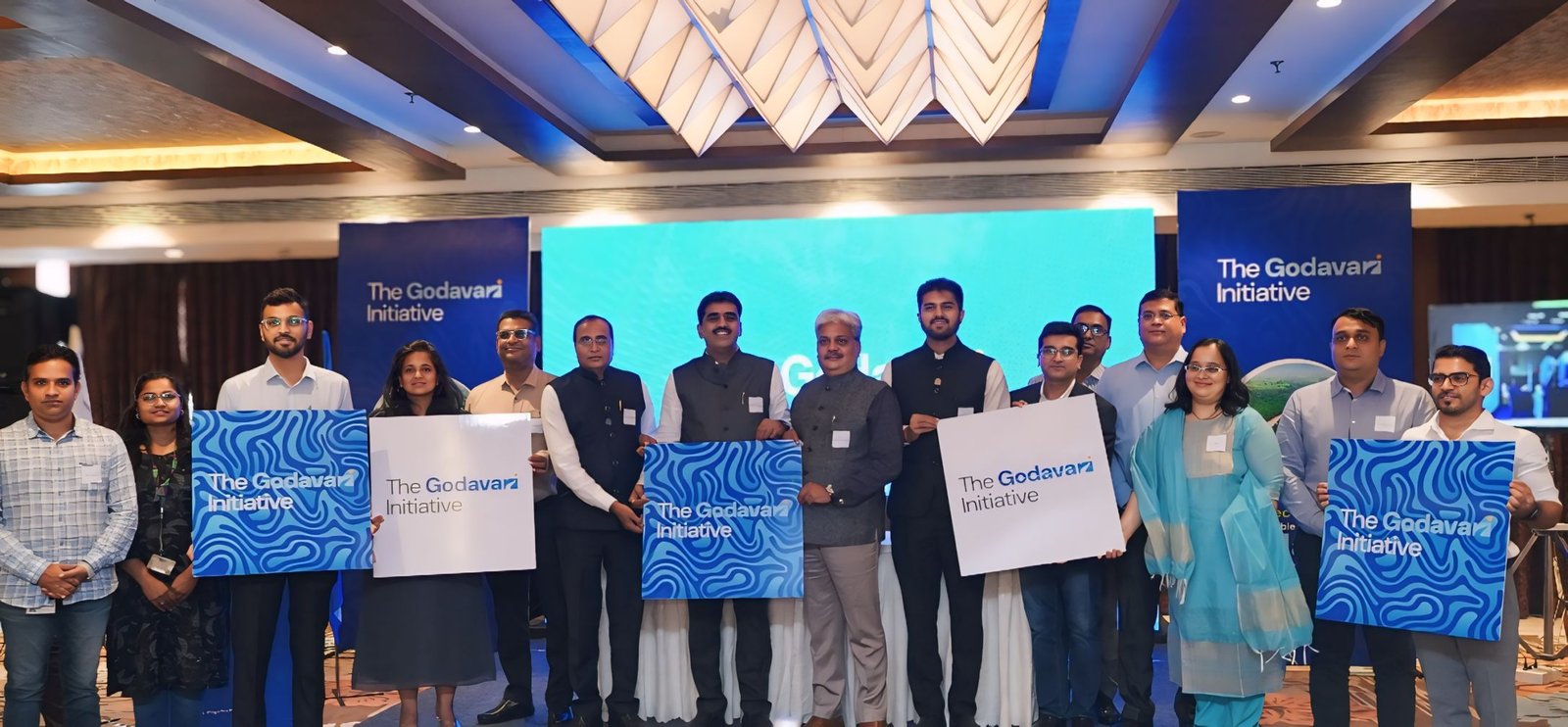
24th September 2024: The Godavari Initiative (TGI), in collaboration with Diageo India, hosted a Regional Consultation on Collective Action for the Godavari River Basin on Monday, 23rd September 2024, in Nashik. The consultation brought together corporations, industrial bodies and associations, government agencies, civil society organizations, and academia to tackle the urgent ecological challenges faced by the Godavari River and its surrounding regions. The event was held in the presence of Shri Shashikant Patil, Deputy Engineer, Maharashtra Industrial Development Corporation; Shri Sanjay Sonawane, Vice President North Maharashtra, Maharashtra Chambers of Commerce Industry and Agriculture (MACCIA); Shri Dhananjay Bele, President, Nashik Industries and Manufacturers Association; and Shri Lalit Boob, President, Ambad Industries and Manufacturers’ Association, from leading industry bodies. The consultation also witnessed the presence of leading corporations are present in the Nashik region, around the Godavari River basin.
Launched earlier in Mumbai with Shri Mukesh Sinha, Chairman, Godavari River Management Board, TGI is a collaborative effort aimed at enhancing the resilience of the Godavari Basin in Maharashtra through collective action, knowledge sharing, and sustainable water management practices.
Shri Navdeep Singh Mehram, Head, CSR & Sustainability, Diageo India, said, “At Diageo India, water stewardship has been a longstanding priority for us under our ‘Spirit of Progress’ ESG action plan. Initiatives like this consultation are critical because they bring together government, industries, nonprofits, academia, and communities—to collaborate on practical solutions. We are proud to be a founding corporate partner of this initiative and believe that collective action is the way forward to restore Godavari’s ecological balance and ensure its sustainability for future generations.”
Highlights from the Regional Consultation
The event highlighted the need for tech-forward methods and actions for the sustainable management of the Godavari River Basin in Maharashtra. It opened with representatives from corporations outlining TGI’s mission and Nashik’s critical role in the future of the Godavari River Basin.
Senior officials from government organizations also shared insights on policies aimed at river conservation. A significant highlight of the regional consultation was the inking of Letters of Understanding (LoUs) with three industry associations working at the state, district, and block levels.
“There are pressing challenges facing the Godavari River, and right now, the need for collaborative engagement among stakeholders is critical and paramount. Initiatives such as the Godavari Initiative can work with the Maharashtra government’s “Gaalmukta Dharan,” aiming for the river’s natural beauty and I call for collective action to clean the Godavari, ensuring that we can once again experience its pristine beauty, of said Shri Sanjay Sonawane, Vice President of North Maharashtra at the Maharashtra Chambers of Commerce, Industry & Agriculture (MACCIA).
“Nashik is my home, and our connection with the Godavari River is very emotional. The Godavari River basin in Maharashtra needs urgent attention and intervention from all stakeholders, including government, corporations, and communities that are dependent on the Godavari River for its abundant resources. We are happy to work with the team at The Godavari Initiative to nudge collective action for improving the health and resilience of the Godavari River basin in Maharashtra,” shared Shri Dhananjay Bele, President, Nashik Industries & Manufacturers Association.
“The Godavari River is not only a lifeline for agriculture and industry but also a crucial part of the cultural and ecological fabric of Nashik and the surrounding region. The challenges facing the river are significant, but through collective action, we can drive impactful solutions. This consultation is an opportunity for stakeholders across sectors to come together, share insights, and develop strategies that will ensure the sustainable management of the Godavari River Basin for future generations. We are committed to facilitating meaningful collaborations that will restore and protect this vital resource,” said Shri Lalit Boob, President, Ambad Industries & Manufacturers Association.
TGI also presented how collective action can be instrumental in driving impactful change, with detailed research outlining key challenges and proposed strategies to address issues impacting the Godavari River Basin regionally. Major civil society organizations presented their work and initiatives in the Nashik region. The consultation concluded with a detailed presentation on how sustainable tourism and culture can be prevented in Nashik through specific initiatives for the Godavari River basin.
Why Now?
Globally, 100 river basins have been identified as critical priorities for water stewardship, representing regions with immense potential for collective action. Eight of these priority basins are in India, with the Godavari River Basin a central focus for TGI. As part of the UN Global Compact’s CEO Water Mandate, TGI’s collective action platform seeks sustainable solutions for river basin management. The Godavari Basin, spanning key agricultural and industrial zones, has come under increasing pressure from urbanization, industrial growth, and unsustainable practices, making collective action more urgent than ever.
Call for Collective Action
The Nashik Regional Consultation provided not only a platform for dialogue but also an opportunity to develop a tailored action plan for the Nashik district, addressing local challenges within the broader framework of Godavari River conservation. Attendees explored how their respective organizations could contribute to sustainable solutions.



















